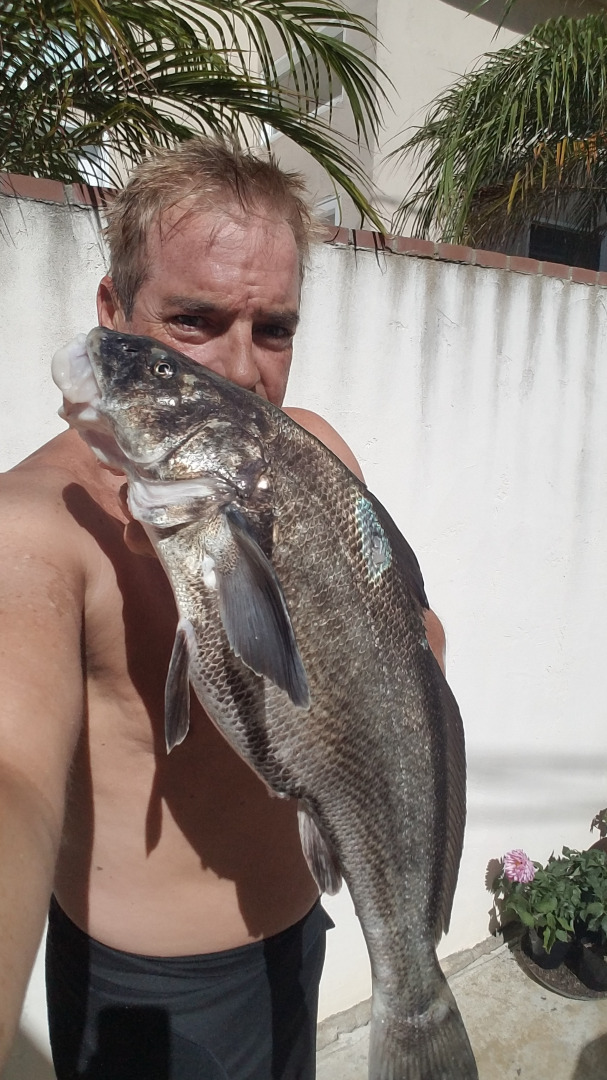Fish Report for 7-9-2022
California Saltwater Angling and Diving Records Program

by California Department of Fish & Wildlife
7-9-2022
Website
Have you ever caught or speared a fish so large, you thought it might be a State record? Larry Laumann thought just that when he speared this 6.3 pound trophy-size California corbina near San Diego on the Fourth of July. Unfortunately, he checked the California Department of Fish and Wildlife (CDFW) Fishing and Diving Records web page after he had filleted the fish and without getting an official weight from a certified scale, disqualifying him from the new record. While Larry certainly has bragging rights, the old record for California corbina still stands at 5 pounds 15 ounces.
CDFW maintains a list of state fishing and diving records for various species. The next time you land “the big one”, check CDFW’s Fishing and Diving Records web page to see if your species is listed for either “Ocean Angling” or “Ocean Diving” under the “Fishing Type” category, depending on the method of fishing you used. Note that only the species listed can qualify for a record, other species are not accepted.
If your species is listed, and if you think your fish might be bigger than the current record, there are important steps to follow, which can be found in the Procedures for Submission of Saltwater Angling Record or the Procedures for Submission of Diving Record. Be sure you also adhere to the rules, found on those documents! Procedures are as follows:
- Print either the Saltwater Angling Record Verification Form, or the Diving Record Verification Form, depending on the fishing method you used. Be sure to record the date and location of your catch.
- Have your fish weighed on a scale certified by a government agency for accuracy in the presence of two witnesses, preferably unknown to the angler. Note that home scales, no matter how accurate, don’t count. Fish markets and some fishing clubs and yacht clubs have certified scales that they’ll often let you use. Be sure to call in advance to make sure the scale is available. Record the names, phone numbers, and addresses of the witnesses on the verification form. In addition, ask for a weight receipt. Take several clear pictures of the fish at full length with a measuring device in the background so the length of the fish can be determined, as well as a picture showing the fish on the scale with the weight displayed if possible.
- Contact CDFW to arrange for an Environmental Scientist to identify your catch. The best place to start is by emailing CDFW’s Marine Region. Keep the fish whole (frozen is fine) so it can be examined if necessary.
- Upon verification of the authenticity of your submitted application, you will receive a letter of acknowledgment and certificate signed by the Department of Fish and Wildlife Director.
Though Larry’s fish could not be certified as a record because he filleted and ate it, Larry wants all California fishermen to know that record-setting big fish still exist in our waters! As Larry put it, he hears so much about how great the fishing “used to be”, but the fact is that the ‘good times’ in California are RIGHT NOW!
< Previous Report Next Report >
< Previous Report Next Report >
More Reports
Chinook Salmon Season to Open July 1 on Portions of Klamath, Trinity Rivers
Klamath River - Upper - CA7-4-2022
Sport fishing for Chinook salmon in the Klamath River Basin is set to begin July 1 and will continue through...... Read More

6-28-2022
The first of California’s two Free Fishing Days in 2022 is coming up over the Independence Day holiday weekend. On Free...... Read More

Website Hosting and Design provided by TECK.net